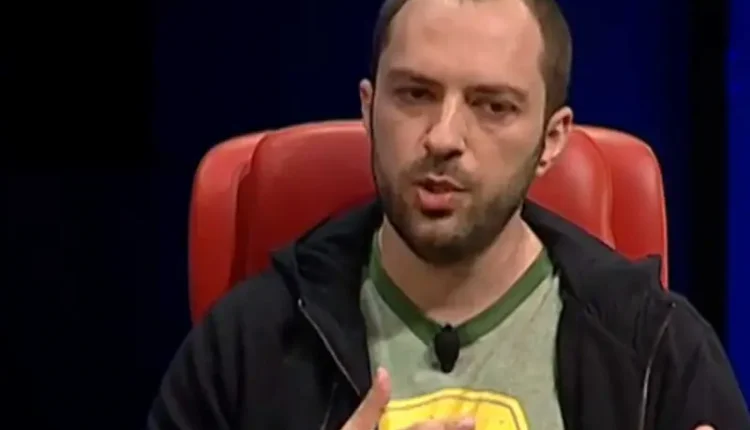Rich Men, Their Privileges And Myth Of Common Starting Line (2)
Despite having little when he first arrived in America, Jan Koum’s billion-dollar sale to Facebook demonstrated a deep comprehension of the values that permeate elite networks. The distinction is that he acquired them via hunger as opposed to inheritance.
Is it possible for us to learn from people who started with advantages we never had? This is the crucial question that divides Nigerian discourse. Many contend that privilege invalidates wisdom and that only those who have experienced hardship can legitimately teach wealth creation. Although that notion may have emotional relevance, it obscures reality and keeps us in the very jail we are trying to get out of.
One type of messenger is not the only one with wisdom. It is not necessary for doctors to recover from every illness. To fly an aircraft, a pilot does not have to build it. Competence is not a product of one’s birth circumstances, but rather of one’s perspective, education, and experience. A drowning man who rejects a rope because it wasn’t thrown by someone who almost drowned is analogous to the young Nigerian who refuses to learn from the rich due to their initial advantages.
There are observable patterns in the production of wealth: timing, structure, leverage, and strategic thinking. Application, not simply access, is what made Aliko Dangote wealthy. It took research, practice, and constant improvement for him to become an expert in supply chains, market behavior, and capital efficiency. The intelligent are able to distinguish between the source and the content of knowledge. Regardless of the ease or difficulty of its discovery, a principle is nonetheless valuable.
I plan to read Otedola’s book when it becomes available. Understanding how Otedola managed risk, saw opportunities, entered markets, and overcame regulatory obstacles is more important to me than becoming one. In order to absorb ideas, Warren Buffett once read every book on investing available at his neighborhood library. He wasn’t trying to copy other people; he was seeking knowledge. He realized that the one advantage that can be gained regardless of your father’s financial situation is knowledge, which is the ultimate equalizer.
Every affluent person has two tales to tell: one about circumstance and the other about habit. thinking strategically. curiosity. postponed satisfaction. establishing connections. These are background-neutral, universal currencies. Instead of copying the affluent word for word, the objective is to take what works and adapt it to varied situations, starting places, and aspirations.
A young entrepreneur once told me that he would rather spend six months with Dangote than a million dollars. That stuck with me. It exposed a more profound reality: knowledge compounds outperform money. The young man realized how riches and education actually match up and why the privilege jail is ultimately self-imposed.
Read Also: PDP Slams Abdullahi for Using ADC to Attack Party Instead of Confronting APC
But not every success can be attributed to strategy. I’ve had experiences that don’t make sense. Some people refer to it as Providence. Grace. Time. alignment. “The race is not to the swift, nor the battle to the strong,” as the book of Ecclesiastes teaches us. I think about that poem a lot, especially when my well-laid plans unexpectedly fall apart. However, being prepared sets us up for success when the time comes.
As a country, we all too frequently see riches with mistrust, but skepticism without knowledge is just another way for us to undermine ourselves. We can learn without losing our voice, listen without giving up, and question without being hostile. The rich must also share their knowledge by publishing books, giving advice, and mentoring those outside of their family. Sustainable wealth is taught, passed on, and clarified; it is not merely inherited. Knowledge transfer and asset distribution are given top priority by families that preserve riches across several generations.
However, those who have arrived are not the only ones who bear responsibility. The privilege cage that whispers that success is impossible from the beginning must be rejected by those who are still ascending. They must learn to synthesize, gaining knowledge, modifying tactics, and remaining humble enough to absorb knowledge from anyone who has something to contribute, including those whose paths started on higher terrain.
Although reasonable, the criticism of Otedola’s book completely misses the mark. While writing can serve as a gatekeeper, this type of writing also creates opportunities. Every tactic clarified, error recorded, and principle distilled contributes to the architecture of public knowledge. A hoarding of knowledge that benefits only one lineage while others are kept in the privilege prison they created is a risky alternative.
You already have more privileges than billions if you are young and educated enough to read this article, have access to the internet to discuss these concepts, are healthy enough to pursue ambitions, and have the time to create them. Compound what you have instead of calculating what you need.
Without some advantages, things are difficult, but not impossible. The most powerful, yet most brittle, bar in the privilege jail is the myth of impossibility. The decision to build from where you are, with what you have, toward where you want to be is devastating.
The burden of stewardship falls on the rich, while the burden of renewal falls on the dispossessed. In the cathedral of human progress, both are essential architects.

